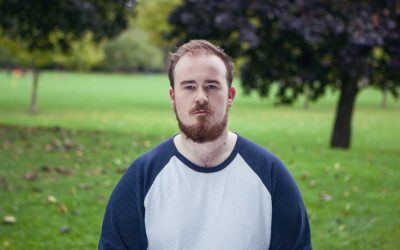Do natural variations in hormones, such as oestrogen, make anxiety disorders more likely? If so does this affect the way people respond to treatment?

Precision child and adolescent mental health: predicting treatment outcome and resource use with case-mix adjustment
How can we better understand whether a treatment will work for a young person?
The project
Mental illness affects one in ten children in the UK. But many are going without the right treatment, or experiencing long delays to get the right support.
A major challenge is that we don’t know enough about how factors such as age, gender, ethnicity and type and severity of condition impact a treatment’s success, so children are left with a treatment that doesn’t work well for them.
Dr Miranda Wolpert and her team at University College London are working to establish the impact these factors have, with the aim of enabling young people, carers and clinicians to choose the most effective support and set realistic, personalised goals for therapy.
The process
Miranda and her team are combining large anonymised datasets detailing demographic information, the types of services children have accessed and whether they were successful, enabling them to better analyse how effective treatments are for different young people.
They will look to answer the following questions:
- How do demographic factors such as ethnicity, age, gender and socio-economic status relate to treatment outcomes for young people?
- What types of young people are likely to see quicker positive impact on their mental health after receiving treatment?
- How can we ensure we’ve got the most comprehensive view of young people accessing mental health services and that this is of benefit to the government, commissioners and service providers?
The potential
With a greater understanding of all the different factors at play, we’ll be able to ensure more children are receiving the right care, at the right time.
With some children currently having to wait years to get the right support for them, enduring unnecessary and sometimes negative side-effects, this could transform the lives of many young people.
And as well as providing essential help to the individual child in need – it will also help to make services more efficient and cost-effective.

Dr Miranda Wolpert is Professor of Evidence Based Practice at UCL, and Director of the Evidence Based Practice Unit, a service which works to bridge evidence and practice in child mental health.
Was this information helpful?
Related research profiles
Sensitive periods for the effects of depression on suicide risk: a longitudinal study of gene-environment interactions and epigenetic mechanisms
Dr Lussier aims to determine the extent to which child and adolescent depression interacts with genetic susceptibility to influence suicide risk in early adulthood.
Increasing access to social prescribing for people living with severe mental illnesses at risk of cardiovascular disease
People with severe mental illnesses are at high risk of heart disease due to lack of physical activity and social isolation. Social prescribing can help, but is it accessible?


